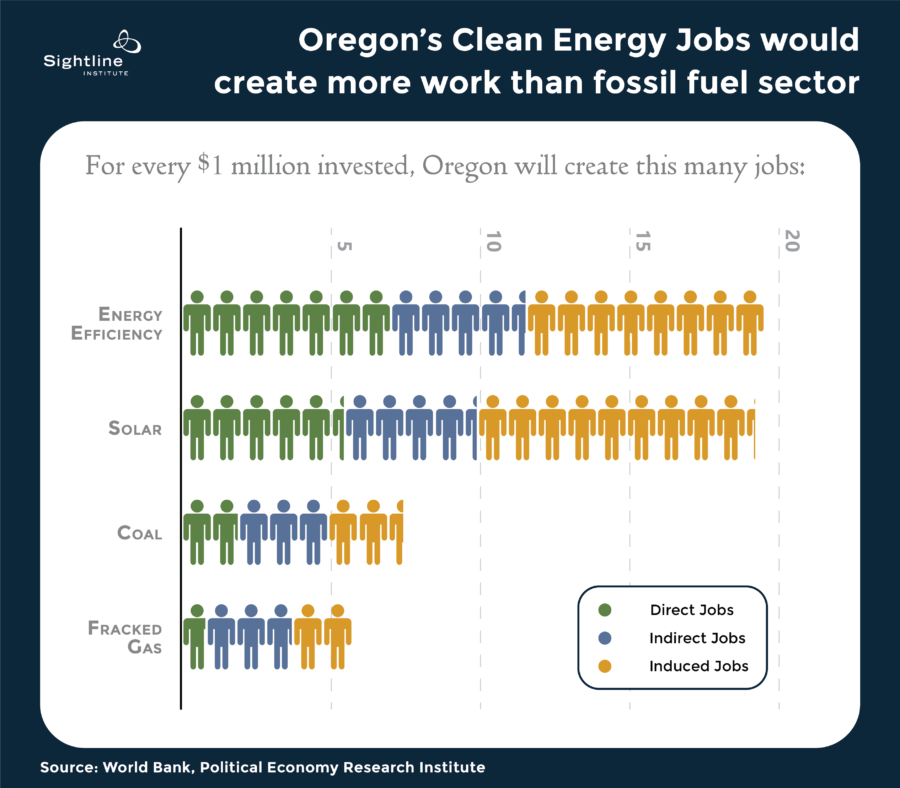[vc_row][vc_column][vc_column_text]Oregon legislators are poised to pass a pollution-busting bill and put Oregon on track to meet its climate goals. Some lawmakers and constituents wonder: is investing in clean energy really worth it? Couldn’t we just make polluters pay and leave it at that, instead of also re-investing the revenue in Oregon’s clean energy economy?
We ran the numbers to find out how many new jobs, less pollution, and other benefits Oregon’s investments could generate. Check it out, and feel free to share under our free use policy.
For more details and sources, see our tables here.[/vc_column_text][/vc_column][/vc_row][vc_row][vc_column][vc_single_image image=”69684″ img_size=”full” add_caption=”yes” alignment=”center” css=”.vc_custom_1548138723081{background-position: center !important;background-repeat: no-repeat !important;background-size: contain !important;border-radius: 2px !important;}” title=”Tidelands Restoration”][vc_separator color=”black”][vc_single_image image=”69683″ img_size=”full” add_caption=”yes” alignment=”center” title=”Solar”][vc_separator color=”black”][vc_single_image image=”69682″ img_size=”full” add_caption=”yes” alignment=”center” title=”Forest Management”][vc_separator color=”black”][vc_single_image image=”69681″ img_size=”full” add_caption=”yes” alignment=”center” title=”Energy Efficiency”][vc_separator color=”black”][vc_single_image image=”69680″ img_size=”full” add_caption=”yes” alignment=”center” title=”Bike Infrastructure”][vc_separator color=”black”][vc_column_text]Michael Peñuelas is a researcher and community organizer for food and energy systems that are secure, sovereign, and resilient. He has degrees in Earth System Science and in Environmental Policy and Management from Stanford University.[/vc_column_text][/vc_column][/vc_row]


Comments are closed.